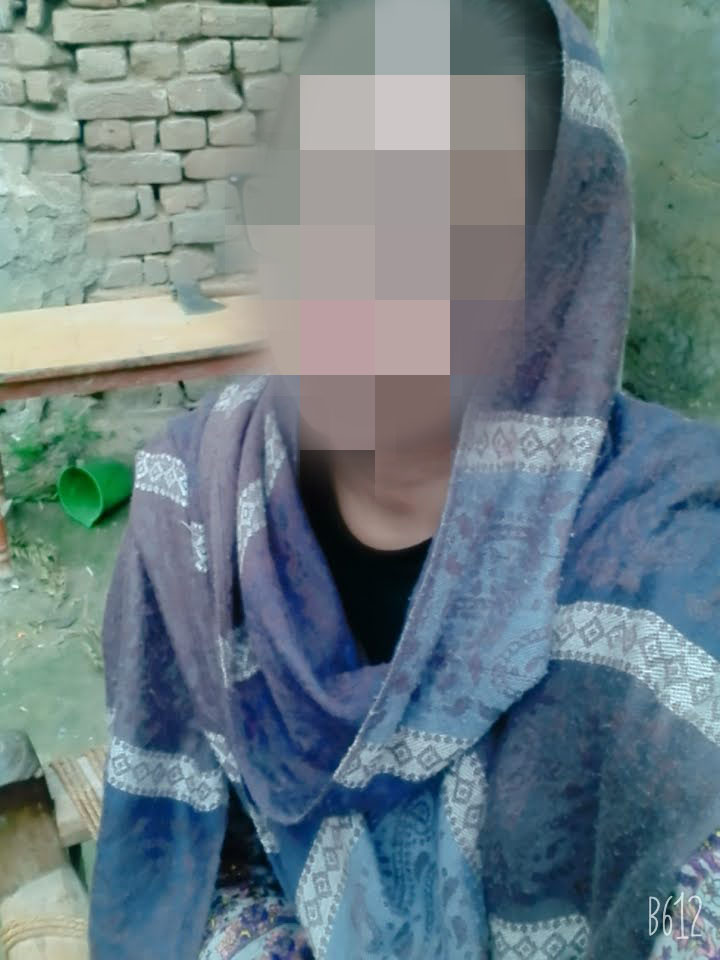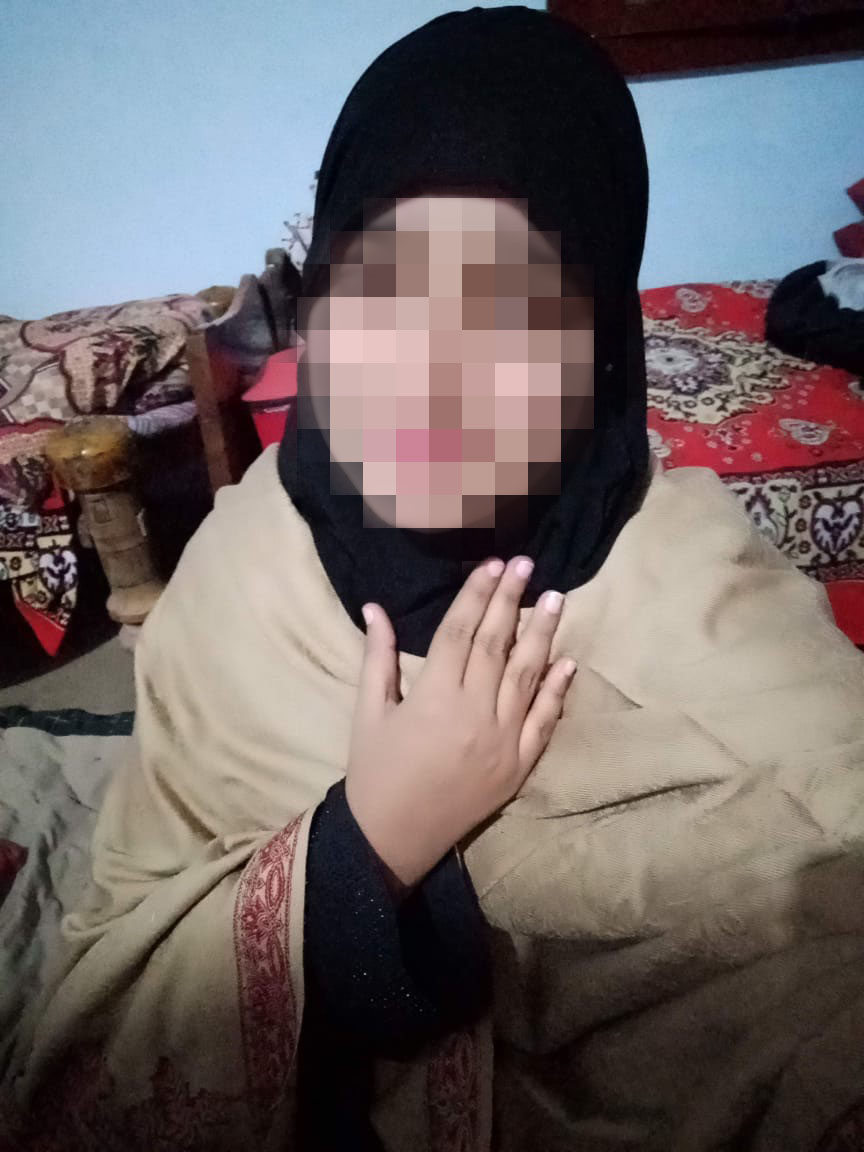Despite traditional tribal taboos and constraints, a young girl from an underprivileged Pakhtun family in Pakistan completed her graduation studies and is now determined to pursue even more education.
Sana was born in a mud-made house in the Swabi area of Khyber Pakhtun Khwa amid the whispers of poverty and tribal traditions. Today, Sana is the first in her tribe to earn a bachelor’s degree in English literature, and she teaches English in a private college in Swabi.
She told The Media Line, “I am looking for an M.Phil in the subject because I enjoyed reading English as a child.”
Sana is also an expert beautician, and she used her skills to assist the family while studying. She was born in 1998. Her family was impoverished and constrained by traditional stereotypes. She has two sisters and a younger brother. Her father, Muhammed Riaz, who had traveled the village selling cooked rice in a wooden cart with uncontrolled diabetes, is now confined to bed.
Sana told The Media Line that, due to her keen interest in education, she got admitted into the village’s government primary school, but at the tender age of 8, she was married off by her father, under the impact of tribal elders, to a 35-year-old heroin addict, shattering all her ambitions.
She continued that after they got married, her spouse brought her to Karachi, nine hundred miles away from Swabi, adding, “Even speaking with my parents was off-limits.” Sana further told The Media Line she was beaten by him every day, and her body was covered in bruises.
She went on to say that due to the brutal assaults of her ex-husband, she almost lost her sight. She underwent eye surgery two years ago by a compassionate eye surgeon in Rawalpindi, which was free of cost. The process restored her sight and enabled her to continue her studies.
“Despite surviving months of torture and physical abuse at the hands of my husband, I refused to yield to despair, and finally, I was divorced at the age of only nine. At a young age, when innocent girls play with dolls, I became a divorced girl,” she said in a sad tone.
”No one can imagine how a girl who divorced at such an age was viewed in the tribal society,” Sana said.
Sana carried on, “After going through the darkest days of my life, my passion for learning was rekindled. I made up my mind to move forward to get higher education at every cost, and I did it.”
She studied English literature for four years at a reputable postgraduate institution.
“During the study, I never revealed to my peers that I belonged to an impoverished family,” she told The Media Line. She added, “It used to be an extremely exhausting trip back from college, requiring him to switch public transport.”
Sana further told The Media Line that when she got home, she didn’t nap. To cover expenses for the kitchen and other home costs, she used to operate a beauty salon, which she still does.
Give the gift of hope
We practice what we preach:
accurate, fearless journalism. But we can't do it alone.
- On the ground in Gaza, Syria, Israel, Egypt, Pakistan, and more
- Our program trained more than 100 journalists
- Calling out fake news and reporting real facts
- On the ground in Gaza, Syria, Israel, Egypt, Pakistan, and more
- Our program trained more than 100 journalists
- Calling out fake news and reporting real facts
Join us.
Support The Media Line. Save democracy.
She also told The Media Line that her elder sister likewise experienced forced and early child marriage, saying, “After giving birth to a daughter, she went through a divorce; currently, she resides with her daughter with us, and I am also responsible for covering their costs.”
While expressing her future ambitions, Sana said that her family is underprivileged, and she does not have sufficient resources. However, if she were given the opportunity, any university in the United States would be her choice.
Sana’s journey is destined to be one of hardship and spirit. With unwavering determination, she seized the opportunity to pursue an education.
Sana’s resilience and determination resonated with young girls who dared to dream beyond the limitations imposed upon them.
Today inspired by her example, they too began to envision a future filled with possibilities, where education was not just a privilege but a fundamental right.
Safeer Khan, an English lecturer and linguist, told The Media Line, “I salute Sana for her passion for learning English literature. She was my student in the International English Language Testing System (IELTS) demo class.”
Khan told The Media Line, “Sana should be called a ‘storm defeater’ for her unbreakable devotion and consistency. She realized her ambitions, breaking a centuries-old chain of illiteracy and tribal norms.”
Khan noted that “Her emphasis in the classroom was always on the value and effectiveness of education.”
The Media Line spoke with a few experts on the subject of forced and early child marriages.
Hadiqa Bashir, 22, has been actively working against early and forced marriages for the last 10 years in Pakistan’s Swat Valley, once a hotbed of the notorious Tehreek-i-Taliban Pakistan, a banned militant outfit.
Bashir told The Media Line, “Sana’s tale is deplorably not unique to Pakistan; there are numerous places where girls from underprivileged families are coerced into early-age marriages, which frequently results in a sequence of abuse and denial of their fundamental rights, such as an education.”
In reply to The Media Line’s question, Bashir said, “This sequence is perpetuated by a combination of cultural, social, and economic factors that perpetuate gender inequality and limit opportunities for girls. Girls like Sana can break this sequence. They can pursue their goals by getting an education to empower themselves.”
Bashir told The Media Line, “I appreciate the determination and resilience of Sana and the girls’ survivors of early forced marriages. Despite facing immense challenges, she chose to defy societal expectations and pursue her education.”
Bashir also told The Media Line, “Her story serves as an inspiration and a reminder of the importance of education as a tool for empowerment and social change. Sana’s battle also emphasizes how critical it is to step up efforts to uphold and defend girls’ rights, particularly their freedom of choice and education.”
Bashir emphasized, “Education can play a pivotal role in eradicating and stopping early-age forced marriages, but unfortunately, there is a lack of educational institutes in the tribal areas. More educational institutes are required on an urgent basis.”
Erfan Hussein Babak is a human rights lawyer and the executive director of The Awakening, a Swat-based organization working for social and cultural development.
“For centuries, early and forced marriages have been a problem with Pakistani tribes. The Child Marriage Act of 1929 is still in effect in the province. Regretfully, Khyber Pakhtun Khwa Province has not yet enacted the new laws. Although we are working to modify it,” he told The Media Line.
In reply to The Media Line’s question, Babak said, “It is a well-established fact that laws are the sole means of protecting rights. It is anticipated that the child marriage issue will be permanently resolved under the new Pakistan Tehreek-e-Insaf government in Khyber Pakhtunkhwa province.”
He revealed, “We recently surveyed forced and early child marriages in the Swat region. Sixty-seven percent was the ratio found, with higher percentages of 73% in some places. Poverty and illiteracy are significant contributing factors to this issue’s existence.”
Babak urged, “There is an urgent need to address education along with beneficial laws with proper implementation mechanisms as major issues. The government should pledge to combat poverty.”
Hameed Asghar is a Rawalpindi-based English professor and a leading educationalist.
Asghar told The Media Line, “In the path of knowledge-seeking youth, especially in the county’s tribal set-up, Sana can break barriers with her fearless courage.”
Asghar noted, “Unfortunately, the Imran Khan-led previous regime did little to smash such shackles during the two terms of government in the Khyber Pakhtun Khwa province.”
He further said, “Sana’s choice of English Literature speaks volumes about her intellectual bearings, which are no doubt God-gifted. Regrettably, such people seldom get significance in a male-dominated society. Their carriers should be prioritized by the government.”



